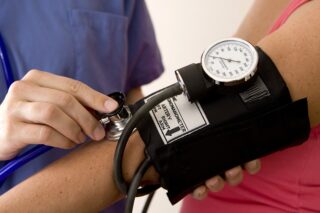
Thanks to strides in Cardiac Ablation Therapy, countless people who suffer from atrial fibrillation (AFib) have been able to get the help they need through a minimally invasive procedure. Although the recovery time after an ablation procedure is significantly less than that of open heart surgery, there are still some things to keep in mind in the weeks and months after you leave the hospital. Below are 10 of the top things to expect after your AFib ablation.
- The recovery time depends on many individual factors, so make sure you allow your body to recover at its own pace. Even though it is a minimally invasive procedure, you still need to make sure you don’t over stress your body as its recovering.
- Because the catheter is inserted in the groin area, there can be some pain and bruising in the days after the procedure. However, if the pain is persistent or there is swelling, contact your doctor.
- Chest pain after the procedure is common, especially when taking a deep breath or coughing. This is because the lining of the heart can be irritated by the procedure, but the pain levels should decrease as the days go on.
- Arrhythmia isn’t uncommon. You’re not going to leave the hospital with a heart that beats perfectly right away. It may speed up, slow down, or even exhibit AFib again for a few weeks, but this is part of the process of your heart getting used to a new rhythm.
- Effects from anesthesia are normal. You might have a sore throat or coughing, and you might feel groggy for hours or even days after the procedure.
- Your resting heart rate will likely increase. It will go up 10-20 beats per minute for a few months, then will likely settle into a lower rhythm after that.
- Your tolerance to exercise will go down for a period of weeks to months. Your heart’s been through a serious procedure, so be sure to give it time to rest and recover.
- Edema, or water retention may occur in the days and weeks after. This is usually caused by the saline solution sent into your body during and after the procedure. A few days of drinking good amounts of plain water will clear out the excess sodium in your system, as well as the water that it’s causing you to retain.
- You may have some digestive problems. Acid reflux, inability to eat large meals, and feeling bloated are all common. Switch to smaller meals for the time being, and take an over-the-counter acid blocker when needed.
- You can’t throw away your AFib medication right away. You’ll be on anti-coagulant drugs and probably medication to regulate your heart’s rhythm, so be sure to ask your cardiologist about your medication options afterward.
As a highly specialized electrophysiologist, Dr. Dilip Mathew has performed more ablation procedures than anyone else in the Sarasota or Venice area. He has taken special interest in cardiac ablation therapy and other modern techniques that improve heart health, including being the first cardiologist in West Florida to perform the LARIAT™ Procedure. If you are considering a cardiac ablation or if your primary care physician recommends seeing a cardiologist, contact Dr. Mathew today.



